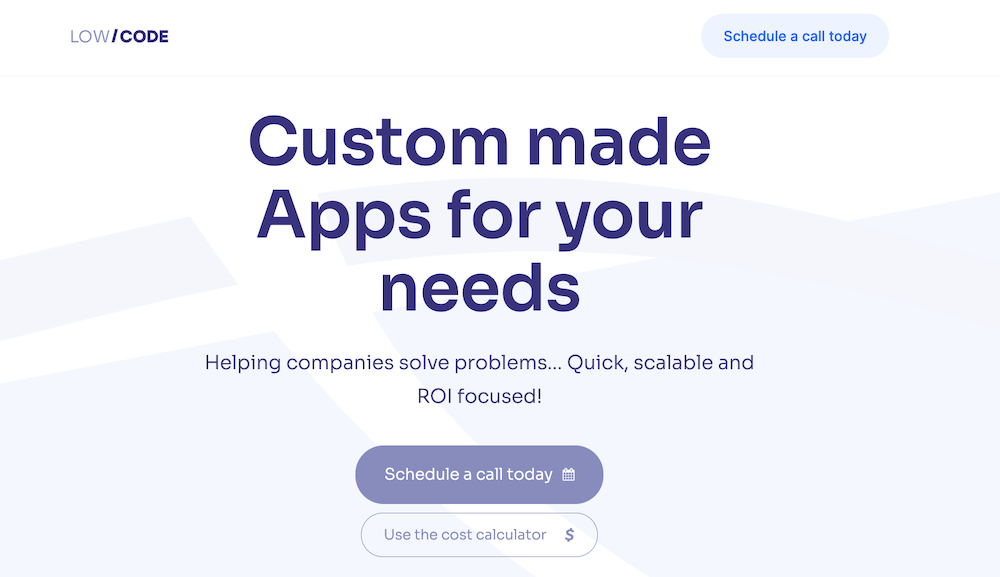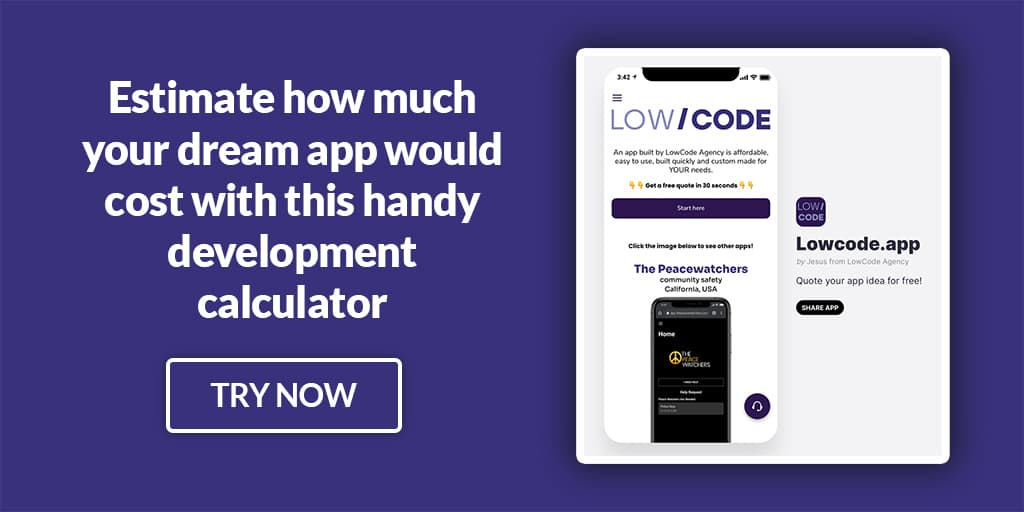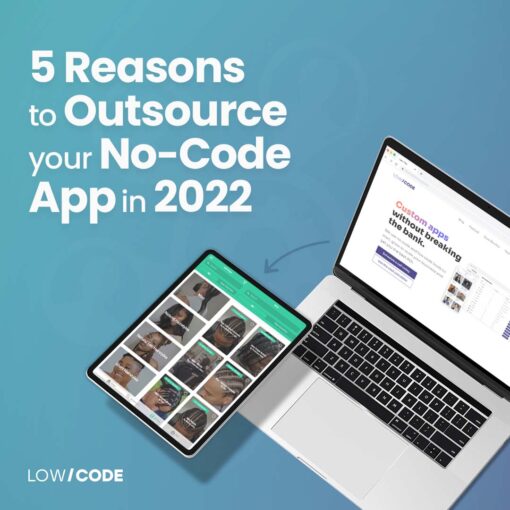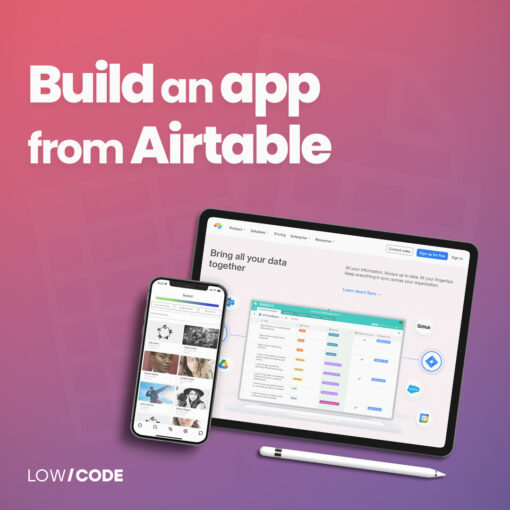Mobile apps have become an important part of many businesses because they help them connect with customers better, streamline processes, and make more money. Still, making a mobile app from scratch can take a lot of time and money, especially for small businesses and startups. Here is where the “white label” term comes in.
White label apps are pre-built apps that have been rebranded and customized to match the demands of a certain organization. They provide several advantages, including faster time-to-market, lower development costs, and increased scalability. They do, however, come with their own set of obstacles and limits. This blog article will go into the world of white label applications, evaluating their benefits and drawbacks, the various types available, and the issues organizations may encounter when adopting them. By the end of this article, you will have a better understanding of whether white label applications are the best solution for your company’s needs. So, let’s get started!
What is a white label app?
A white label app is a pre-built application that businesses may rebrand and alter. It enables them to produce an app that seems and feels as though it was created in-house without the need for huge development resources.
Types of white label apps
Businesses are using white label apps more and more because they are a cost-effective way to make custom mobile apps without needing a lot of development resources or expertise. These apps are often categorized into two groups based on how much control and customization they offer businesses..
Backend white label apps
Backend white label apps provide organizations with backend services like customer relationship management, human resources management, and project management. These apps are typically designed for businesses that want to outsource certain functions without investing in building their infrastructure. While businesses have limited customization options with backend white label apps, they can still rebrand the app with their own logo and branding materials.
Full white label apps:
Backend white label apps offer businesses full control and customization of the app. These apps are designed for specific industries like e-commerce, healthcare, or finance, and provide a range of features and functionality that can be tailored to meet the unique needs of each business. With full white label apps, businesses can rebrand and customize the entire user interface and experience of the app, ensuring that it aligns with their branding and design standards.
Depending on their needs and aims, both forms of white label applications provide benefits to organizations. Backend white label applications are a great choice for companies that want to outsource certain tasks while saving money on development costs. Complete white label applications, on the other hand, let organizations make an app that meets their specific needs and fits with their branding and design standards.
Pros of white label apps
White label apps offer a range of benefits to businesses. They can create customized mobile apps that meet their specific requirements and align with their branding and design standards, without having to invest in extensive development resources or expertise.
Let’s dive into the main pros of building a white label app:
Cost-Effective Solution
White label applications are a good choice for businesses that don’t have the resources to build their apps from scratch. Businesses may save money on development and reduce time-to-market by utilizing pre-built applications.
Customization
White label applications give organizations a lot of flexibility, so they can make an app that meets their specific needs and fits with their branding and design standards. Businesses may rebrand and personalize the whole user interface and experience of the app with a full white label, guaranteeing that it looks and feels like it was designed in-house.
Scalability
White label applications are made to be scalable, which means they can handle a growing number of users and change as business needs do. This makes them an excellent choice for companies trying to grow and extend their consumer base.
Expertise
When businesses use white label applications, they use the skills of third-party developers who are experts in making apps. This implies that businesses do not need to hire a specialized development team and can instead depend on the skills of specialists to create an app that matches their requirements.
Cons of white label apps
White label applications have a lot of good points, but they also have a lot of restrictions and maybe even some bad points. When deciding whether or not to use a white label app, businesses should think carefully about the following:
Limited Control
While white label apps offer a high degree of customization, businesses are still limited in terms of control over the app’s functionality and features. This means that businesses may not be able to add custom features or make changes to the app’s code.
Lack of Uniqueness
While white label applications are frequently pre-built and offered to several firms, the app may not be unique to a single brand or sector. As a consequence, firms may have applications that look and feel identical to those of their competitors, thereby restricting their ability to stand out in the market.
Dependence on Third-Party Developers
When third-party developers create white label apps, businesses still rely on these developers for upgrades and support. This could be a problem if the developer goes out of business or if the program gets old and needs a lot of changes.
Integration Issues
White label apps might not work well with a company’s existing systems or software, which can cause compatibility problems that are hard to fix.
White Label VS. Custom Developed App
While white label applications provide a number of advantages, organizations may want to explore developing their own app. A custom-developed app is one that is created from the ground up for a certain business, industry, or use case. The following are some distinctions between white label and bespoke developer apps:
Control and Customization
Custom-built software gives businesses full control over how it works and what features it has, so they can make it fit their needs. White label apps, on the other hand, give companies little control over how the app works and what features it has. Instead, companies can only change the app in ways that the third-party developer allows.
Uniqueness
A custom-developed software product is tailored to a certain business or sector and may assist organizations in standing out in the market. On the other hand, white label applications are frequently offered to several firms and may not be exclusive to a single brand or industry.
Cost
Because custom-developed applications need substantial development resources and experience, they might be more expensive than white label apps. They do, however, provide a greater level of control and flexibility and may be customized to match the unique demands of a firm.
Who can use white label apps?
From small startups to established corporations, a wide range of businesses can use white label applications. Here are a few instances of companies that might profit from white label apps:
- Small and Medium-sized Businesses (SMBs): SMBs frequently have limited development resources and skills, and they may not have the funding to create an app from the ground up. White label applications are a low-cost way for small and medium-sized businesses to make a custom mobile app without needing a lot of development resources.
- Enterprises: Businesses may have the resources to design an app from the ground up, but they may prefer to employ white label applications for particular services, such as HR or CRM. This enables them to outsource certain activities and save money on development.
- Non-profit Organizations: Non-profit organizations may not have the resources to construct an app from the ground up, but they may still want to create a personalized mobile app to communicate with their donors and supporters. White label applications are a low-cost option that may be tailored to meet the specific demands of non-profit organizations.
- Government Agencies:White label applications may also be beneficial to government entities, particularly for services such as citizen participation and emergency management. White label applications provide a low-cost option that may be tailored to the unique demands of government bodies.
Overall, white label applications can be used by a wide range of businesses and organizations because they are a flexible and cost-effective way to make mobile apps that meet their specific needs and goals.
Which companies make white label mobile apps
There are great builders out there that offer a wide range of customizable white label app templates for a variety of industries and use cases. This allows businesses to make a custom mobile app without a lot of development knowledge or resources.
Let’s check out our top 3 favorite white-label builders:
Appy Pie
Appy Pie works with white label apps by giving businesses several customizable app templates to choose from. Companies may choose a white label app template that is relevant to their business or use a case and personalize it to match their unique needs and branding guidelines.
Businesses may rebrand and personalize the whole user interface and experience of the app with Appy Pie’s white label app solutions, guaranteeing that it looks and feels like it was designed in-house. This includes the flexibility to add new features, modify the color design of the app, and interface with third-party tools and services.
When businesses have customized their white label software, Appy Pie offers a variety of publication choices, including the opportunity to publish the app under the business’s brand name on app stores like Google Play and the App Store.
Glide
Glide provides organizations with great white label app solutions. Businesses can use the Glide no code app builder to make custom mobile apps without needing a lot of programming experience or resources. They offer a variety of app templates that can be changed to fit different businesses, such as real estate, fitness, and education.
With Glide’s white label app solutions, businesses can change the app’s brand and customize the user interface and experience so that it looks and feels like it was made in-house. They also give you a lot of ways to make the app your own, like adding custom features, changing the app’s color scheme, and integrating it with tools and services from third parties.
GoodBarber
Businesses may use GoodBarber to create white label apps without requiring considerable development resources or experience. They offer a wide range of app templates that can be changed, including ones for media, sports, and education.
White label app solutions from GoodBarber allow businesses to rebrand and personalize the app’s whole user interface and experience, guaranteeing that it looks and feels like it was designed in-house. They also give you a lot of ways to make the app your own, like adding custom features, changing the app’s color scheme, and integrating it with tools and services from third parties.
GoodBarber offers many ways to publish a white label app, such as putting it on app stores like Google Play and the App Store under the name of the company. They also offer different hosting options, such as putting the app on the company’s servers, which gives the company full control and security.
How to choose white label developer?
It is critical to select the correct white label developer to guarantee that the mobile app matches your unique demands and goals. Consider the following criteria while selecting a white label developer:
Customization options
Find a white label developer who gives you a lot of flexibility so you can build a mobile app that meets your specific needs and fits in with your brand and design standards.
Industry-Specific Solutions
Choose a white label developer that specializes in your industry or use case, as this can help ensure that the app meets the unique needs of your business.
Technical Expertise
Choose a white label developer who has proven technical skills, such as experience designing mobile apps, knowledge of cutting-edge technology, and an understanding of your company’s goals.
Quality Assurance
Find a white label developer with a strict quality assurance process to make sure the mobile app meets the highest standards for performance, security, and usability.
Support and Maintenance
Choose a white label developer that provides ongoing support and maintenance for the mobile app, including bug fixes, updates, and security patches.
By taking these things into account when looking for a white label developer, businesses can make sure they choose the right company to help them make a mobile app that fits their needs and goals.
White-Label App Development: Where Should You Start?
To get started with your white-label app, you need to build a prototype. And for that to happen, it’s more cost-effective to hire someone like LowCode Agency rather than build your own.

That’s because using low-code/no-code technologies like Glide, you can save upwards of $45k that you would otherwise invest in something you can’t even properly launch at scale.
We don’t recommend that approach, it’s risky.
And while we don’t brush off custom coding for certain use cases, developing complex applications like white-label solutions using low-code technology isn’t fiction either.
So if you’re curious to know more about some of the apps that we’ve built in the past and would like to explore possibilities to build your own, check out our portfolio.

The cost of a white label app depends on its complexity, features, functionality, platform, and developer. White label apps can cost a few thousand dollars to tens of thousands of dollars or more for more complicated and feature-rich apps.
White label apps might be cheaper than making an app from scratch, but companies should think about the costs of maintenance and support. Bug patches, program upgrades for new operating systems, and customer support may add up.
White label apps work by letting agencies rename and alter pre-built apps. A third-party developer or agency that creates pre-built commercial apps often develops the white label app.
White label apps can be enhanced with new features and functions, changed in how they look and how the user interacts with them, and used with APIs and services from third parties.
You may design a white label app from scratch, pay a development team to do it for you, or utilize a pre-built white label app template that you can alter and rebrand with your company’s logo, color scheme, and other branding components. However your decision, it is critical to select a development choice that fits your company’s demands, goals, and budget.

Jesus is the founder of Low Code Agency: a low-code development agency that allows small business owners to get their mobile and web apps done fast and cost-effectively while maintaining quality.





